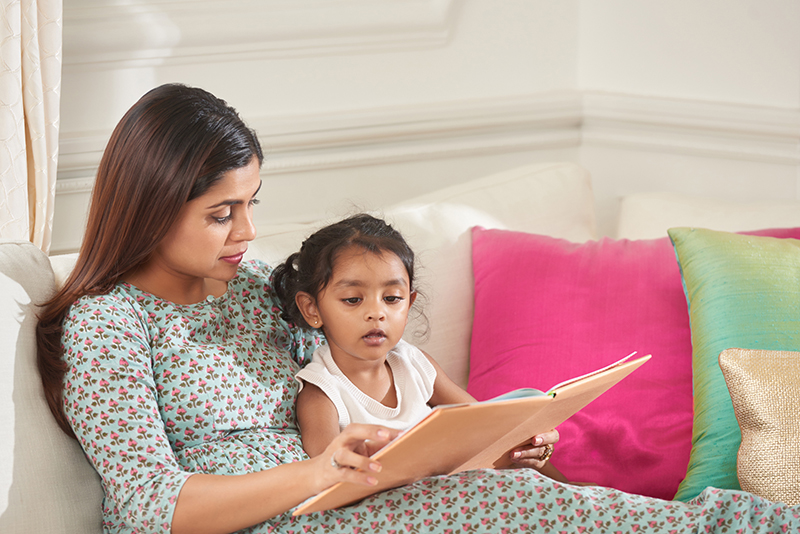Families For Life | Language Delay-Toddlers

DID YOU KNOW?
Play is a great relationship builder. Spending time playing with your child sends a simple message – you are important to me. Help your child learn about who she is and where she fits in the world.
READ MORE

Children learn language at different rates. But if children miss language development milestones by a long way, they are regarded as having a language delay.
What is a language delay?
A language delay is when children have trouble:
responding to language
understanding words or sentences
saying first words or learning words
putting words together to make sentences
building vocabulary
Some language delays are associated with conditions such as autism, Down syndrome and deafness or hearing loss. But many language delays happen on their own.
Language delay, language disorder or speech disorder?
A language delay is different from a speech disorder or language disorder.
A speech disorder is when children have difficulty pronouncing the sounds in words. This can make their speech difficult to understand, although they understand words and sentences and can form phrases and sentences the right way.
If a child has a language delay that doesn’t go away, it might be a sign of a language disorder. A language disorder is characterised by significant delays in learning to talk and understand language.
Children with speech disorders do not necessarily have a language delay, but they can have both.
If you’re concerned about the way your child pronounces words (for example, saying ‘tat’ instead of ‘cat’), you can read more about speech (sound) disorders.
Signs of language delay at different ages
Children develop language at different rates. So comparing your child to other children of the same age might not help you to identify whether your child has a language delay.
That's why it’s best to seek professional advice if you see any of the following signs in your child at different ages.
By 6 months
Your child isn’t:
trying to use eye contact
looking at you when you call their name
turning to look at objects when you talk about them.
By 12 months
Your child isn’t:
playing turn-taking games like peekaboo
trying to communicate with you using sounds, gestures and/or words
trying to communicate with you when they need help or want something.
By 18 months
Your child isn’t:
responding to everyday instructions and questions like ‘Wave bye bye’, ‘Where’s Daddy?’ or ‘Give me the ball, please’
putting 2 words together – for example, ‘More drink’ or ‘Go outside’.
By 2 years
Your child isn't:
saying about 50 different words
putting 2 or more words together – for example, ‘More drink’, ‘Mum up’ or ‘Me go too’
producing words spontaneously – that is, your child only copies words or phrases from others
naming at least one colour
responding to everyday instructions and questions like ‘Get your shoes’, ‘Want a drink?’ or ‘Where’s Daddy?’
Note: Language delay is quite common at this age. About 1 in 6 children shows signs of language delay and are considered ‘late talkers’. But by 4 years most ‘late talkers’ have caught up to other children the same age.
At about 3 years
Your child isn't:
combining words into longer phrases or sentences – for example, ‘Help me Mummy’ or ‘Want more drink’
responding to longer instructions and questions like ‘Get your shoes and put them in the box’ or ‘What do you want to eat for lunch today?’
taking an interest in books
asking questions.
At any age
Your child:
has been diagnosed with a hearing loss, developmental delay or syndrome in which language might be affected – for example, autism and Down syndrome, or other less known syndromes like Fragile X, Landau-Kleffner and Klinefelter
stops doing things that they used to do – for example, they stop talking.
Children having difficulties with language should get help as early as possible. If you’re concerned, trust your instincts and seek help from a professional. If this professional isn’t concerned about your child, but you’re still worried, seek another opinion.
Where to get help for language delay
If you think your child is having trouble with language, talk to a professional – for example:
staff at your child care centre, pre-school or school
a speech therapist
an audiologist.
a General Practitioner (GP) or paediatrician
a psychologist
Speech therapists
A speech therapist will assess your child’s understanding and use of language. The speech therapist might use language tests designed to get your child to use words or to see how your child responds to requests, commands or questions.
The speech therapist might ask you questions about how your child understands and uses language at home. You’ll also be asked about your child’s background – for example, when your child first started using words, when your child walked, whether your child was premature, and about your family, especially whether anyone has had a language delay or language problems.
If a language delay is suspected, the speech therapist might suggest some therapy sessions, either one-on-one with you, or in a group where your child takes part in language activities alongside other children.
You’ll find speech therapists who work with young children at community health centres, hospitals and private practices. You don’t usually need a referral, but talk to a GP or your paediatrician if you need help finding a speech therapist.
Audiologists
If you think your child might have a hearing impairment, it’s best to have your child’s hearing checked by a professional such as an audiologist.
If your child does have hearing loss, the audiologist can tell you how your child’s hearing could be interfering with language development and communication.
Causes of language delay
We don’t know what causes language delay in most cases. But we do know that language delay tends to run in families.
Language delay is more likely for:
boys
children who have a close family member with a history of a language delay or communication disorder
children who have a developmental disorder or syndrome in which language delay is a typical feature – for example, Down syndrome and autism
children with ongoing hearing problems and ear infections.
Sometimes, delays in communication skills can be signs of more serious developmental disorders including deafness or hearing loss, developmental delay, intellectual disability or autism. You know your child better than anyone else. If you have a concern, talk to your GP or a health professional.
© raisingchildren.net.au, translated and adapted with permission
Explore more